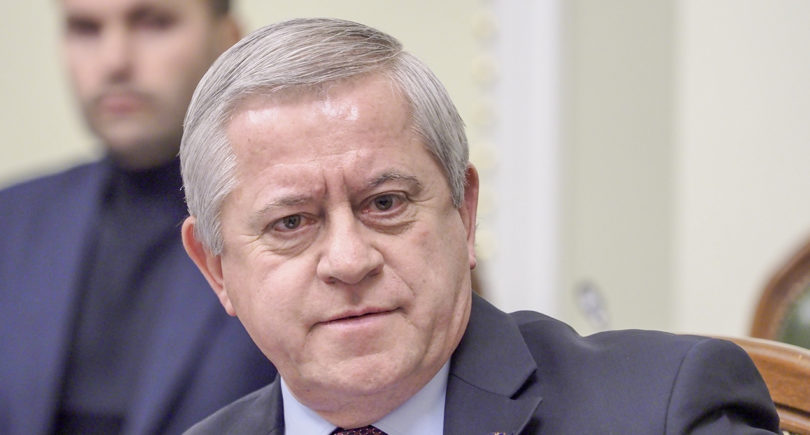
Companies need to liberalize the payment of dividends, expand their loan servicing capabilities, etc.
In the fourth year of the war, it may be time to ease the existing restrictions that ensured the stability of the foreign exchange market in 2022-2023. Currently, restrictions on foreign currency payments have already become an obstacle to increased economic activity for many companies.
Currency barriers
Currency restrictions continue to pose serious challenges for Ukrainian businesses, although the situation is gradually improving. The National Bank’s liberalization measures in 2024 and 2025 have significantly simplified the operating environment for our member companies, in particular through
- the removal of all foreign currency restrictions for the import of works and services;
- enabling businesses to purchase foreign currency and transfer funds abroad to pay for airport and port fees, fines, membership dues, as well as funds from foreign airline representatives and international card payment systems to the account of a non-resident legal entity that these representatives represent in Ukraine;
- providing the opportunity to transfer funds abroad for leasing/rental, granting businesses the ability to repatriate “new” dividends and repay “new” external loans;
- raising the financing limit for overseas representative offices to €1 million;
- increasing limits on settlements using corporate hryvnia payment cards outside Ukraine.
An important step was the introduction by the NBU of the “incentive currency liberalization” by Resolution No. 53 dated 09.09.2025, which aims to facilitate the inflow of additional capital into the Ukrainian economy through the incentives provided by the policy of easing currency restrictions. The NBU expects that this mechanism will allow Ukrainian companies to carry out certain foreign currency transactions in excess of the established restrictions within the investment limit. This limit will be equal to the amount of funds raised from May 12, 2025, in the authorized capital of these companies from foreign investors in foreign currency.
It is worth emphasizing that these easing of currency restrictions were made possible through an open and constructive dialogue between the National Bank and the business community. The EBA regularly informs the regulator about the current needs of business in currency liberalization. Thus, in 2024, two stages of a comprehensive survey were conducted among EBA member companies to identify priority needs and preliminarily calculate the amount of foreign exchange required to meet them. The survey was also intended to identify needs that are not systemic for the business but are critical for certain industries or companies.
The results of the first stage of the survey were reflected in the first major liberalization package of regulatory changes approved by NBU Resolution No. 56 of May 3, 2024. And the recent package of changes (NBU Resolution #53 dated 09.05.2025) partially takes into account the proposals based on the results of the EBA’s second survey.
In addition, regular meetings of the NBU management with representatives of business associations play an important role in the process, where they discuss the macroeconomic situation in the country, the state of the financial industry, the regulator’s planned steps towards currency liberalization, and other issues important to business.
The business community still has some concerns. They include:
- Risks of default by systemic companies. The inability to make payments carries default risks for the Ukrainian economy due to the inability to fulfill debt obligations, which negatively affects the reputation not only of individual companies but also of Ukraine as a whole on the international financial market.
- Restrictions regarding “old” debts. There are a number of limitations that prevent businesses from using debt service instruments for Eurobonds.
- Blocked dividends. Significant amounts of undistributed profits accumulated before the full-scale invasion remain blocked.
At the same time, the Association’s companies understand the need for a balanced approach to support the sustainability of the foreign exchange market.
What hinders business the most
According to the EBA member companies’ surveys, the following are the most difficult for business:
- The ban on paying dividends from profits accumulated before January 1, 2024 – many companies already had a significant amount of retained earnings at the start of the war, and these funds are still blocked. In addition, the current limit for the payment of “new” dividends is insufficient.
- Restrictions on loan servicing, including the inability to repay “old” loans to non-residents (for those payments that are not currently allowed by the NBU) and to use Eurobond servicing instruments.
These problems are partially solved by the new mechanism of “stimulating currency liberalization.” It allows for the fulfillment of debt obligations under “old” external loans received before June 20, 2023, and payments for imports of goods delivered before February 23, 2021, but only within the limits of the new foreign capital raised.
Operational restrictions that hinder business:
- the inability to make payments for imported goods delivered before 23.02.2021 (outside the investment limit);
- restrictions on purchasing foreign currency to meet obligations regardless of the company’s existing foreign currency holdings;
- limited opportunities for offsetting reciprocal obligations.
Companies also face social challenges, such as the inability of non-resident employees to transfer funds to their families abroad, as well as restrictions on paying rent for students studying overseas.
Removal of restrictions
According to the Association’s survey, businesses most need the following changes in the regulation of currency settlements:
- liberalization of dividend payments by increasing the current limit (for example, to €3 million per month) and partially lifting the ban on dividend payments from profits accumulated before January 1, 2024, provided a certain set of safeguards is introduced to prevent significant capital outflow;
- expanding credit servicing possibilities, in particular by broadening the ability to pay loans to non-residents and settle intra-group loan agreements where debt existed as of 24.02.2022. The ability to service Eurobonds will also greatly help businesses to confidently continue their operations;
- allowing the completion of foreign exchange supervision in cases of offsetting mutual obligations, permission to pay for imports of goods delivered before 23.02.2021 (beyond the investment limit), and enabling currency purchases to fulfill obligations regardless of existing funds would largely help businesses maintain their operational activities, meet contractual obligations, and thereby uphold their reputation as reliable business partners;
- to overcome social and corporate challenges, businesses need the employee remittance limit for non-residents to families to be increased to $15,000–20,000 per month, as well as the expansion of payment opportunities for education (including housing rent for students).
These changes are critically important for maintaining the competitiveness of Ukrainian businesses and attracting foreign investment during the post-war recovery.





